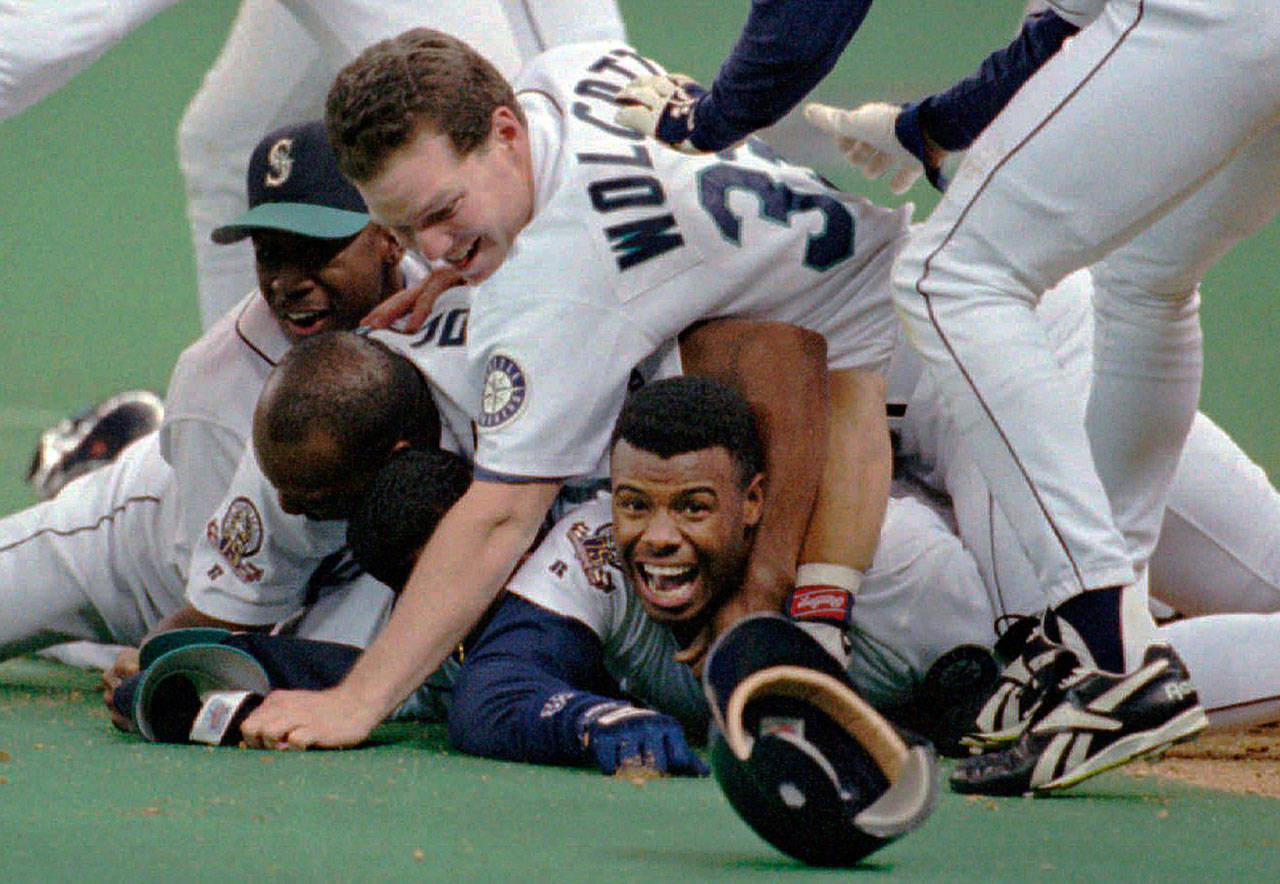ONE 1990s-FOCUSED sports documentary has captured the imaginations and eyeballs of a wide swath of a sports-starved populace in recent weeks.
But no, I’m not here to point readers in the direction of ESPN’s The Last Dance documentary, which does a solid behind-the-scenes peek into the rise and reign of the Michael Jordan-era Chicago Bulls. It’s had some strong moments — the wisdom and ability of head coach Phil Jackson shining through as he navigated coaching a ruthless, relentless competitive maniac.
That’s even as The Last Dance rekindles memories of the Seattle Supersonics, including Gary Payton and Shawn Kemp, and the Seattle squad’s ultimately doomed run to the 1996 NBA Finals. We know in our hearts that the Glove’s defensive intensity made Jordan work that much harder, even if Jordan puts the kibosh on that theory punctuated by a withering eye roll that only his Airness could pull off.
I could discuss Jordan, Scottie Pippen (I named my first pet after him), Horace Grant’s goggles and other minute but fascinating ’90s NBA details all day, but I’d rather focus on a different sport entirely, baseball, and the “stunningly, outrageously weird” franchise history of our very own Seattle Mariners.
Dorktown Seattle Mariners is a six-part, 3½-hour longform documentary series by SB Nation’s Dorktown duo of University of Washington graduate Alex Rubenstein and Jon Bois that covers the team’s early failures, the arrival of Ken Griffey Jr., the M’s brief moment in the sun in the late 1990s when the team fielded at least four baseball Hall of Famers — and still couldn’t scratch a World Series berth.
The first episode, detailing the Mariners’ long, futile history, which begins by tracing the team’s origins to a prolific post-Great Depression-era Seattle arsonist, is included.
It is available at tinyurl.com/PDN-WatchDorktown, and the sixth and final episode, focusing on Felix Hernandez and catching up to present day, is set to arrive later this week.
As one can infer from the filmmakers’ working title, the series goes deep into some of the more strange and ultimately hilarious aspects of the team. Player pranks are highlighted, such as a particularly inspired evening in Chicago that involved moving all of then-manager Rene Lacheman’s hotel room furnishings inside of the bathroom and leaving the skipper to deal with a toilet filled to the brim with green Jell-O.
The production is different from most documentaries. Lacking the finances to license a ton of game film or the access to interview former players, the series relies on an ever-present season-by-season chart of the team’s won-loss record throughout the years that does a great job in showcasing just how bad the team was from 1977-1994 and just how outstanding the M’s were from 1995-2003.
Exhaustive research dug up countless Mariners press clippings from newspapers throughout the state and even the country to provide details on pivotal moments in team history, such as the trade made between Seattle and the New York Yankees for a young slugger named Jay Buhner.
That trade, and Buhner’s subsequent boom in production, led to a classic Seinfeld clip of Frank Costanza taking Yankees owner George Steinbrenner to task for the misguided move. Rest in peace, Jerry Stiller.
Fans are treated to the arrival of the franchise savior, Ken Griffey Jr., aka the Kid, in 1989. And you get to see all the hits, all the biggies of his Mariners career — robbing Jesse Barfield of a home run at Yankee Stadium as a rookie, playing alongside his father Ken Griffey Sr., his rise to All-Star status, an MLB record-tying eight-game home run streak in 1993 and when Junior had just about reached the pinnacle of his popularity, a Nike ad campaign encouraging the public to vote Griffey in ’96 that eventually was ditched when it caused the center fielder to miss out on the Ricki Lake television show.
The classic 1995 “Refuse to Lose” Mariners get their own episode as the team’s improbable run to a first-ever playoff berth dovetails with a stadium referendum that ultimately fails to get the public’s approval.
Ichiro’s career, including the out-of-nowhere MLB-record tying 116-win 2001 season, also receives strong coverage.
There’s so much depth to the series, so much detail, that I can’t recommend the series highly enough. If you love the Mariners, you’ll laugh, cry and ultimately feel better about rooting for them having seen this because you know deep down that you have always loved the team, win or lose, for what it is and not what it could be.
________
Sports reporter Michael Carman can be contacted at 360-406-0674 or mcarman@peninsuladailynews.com.

